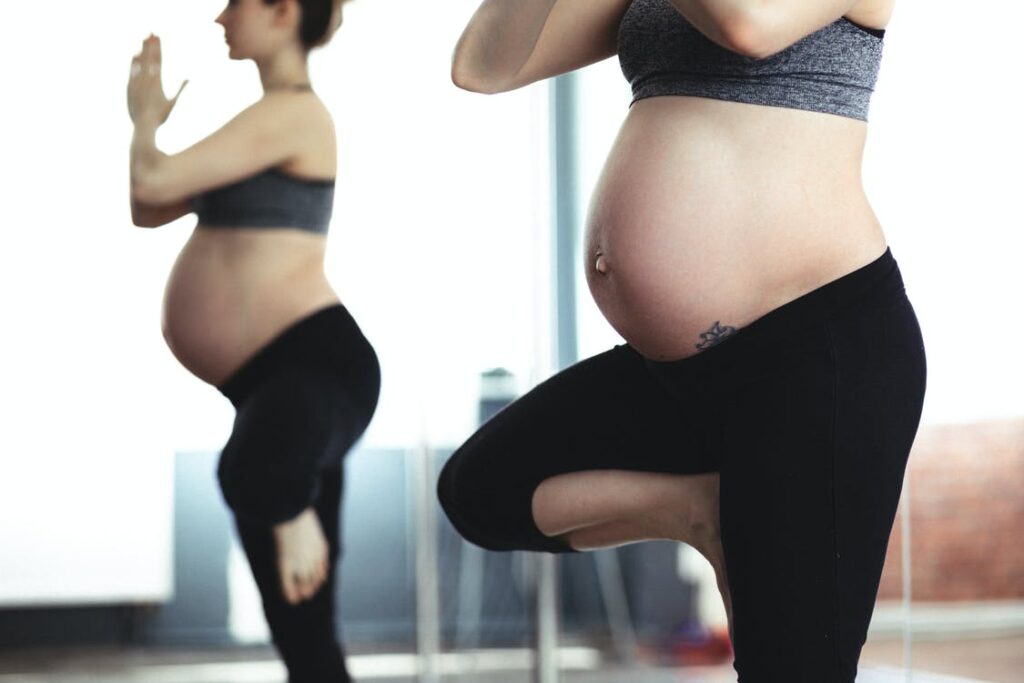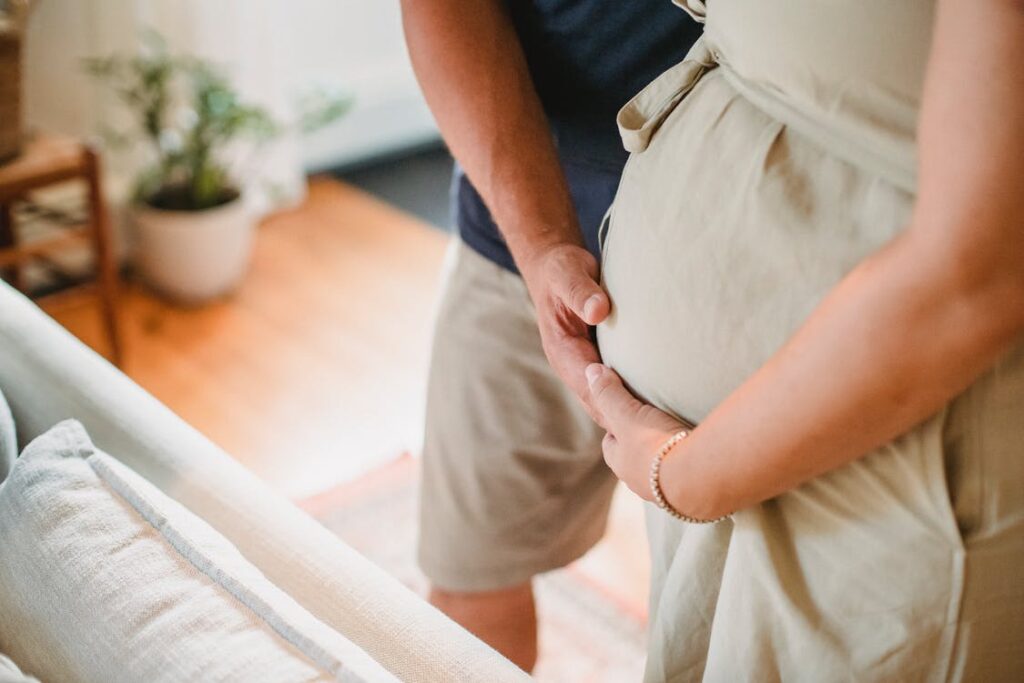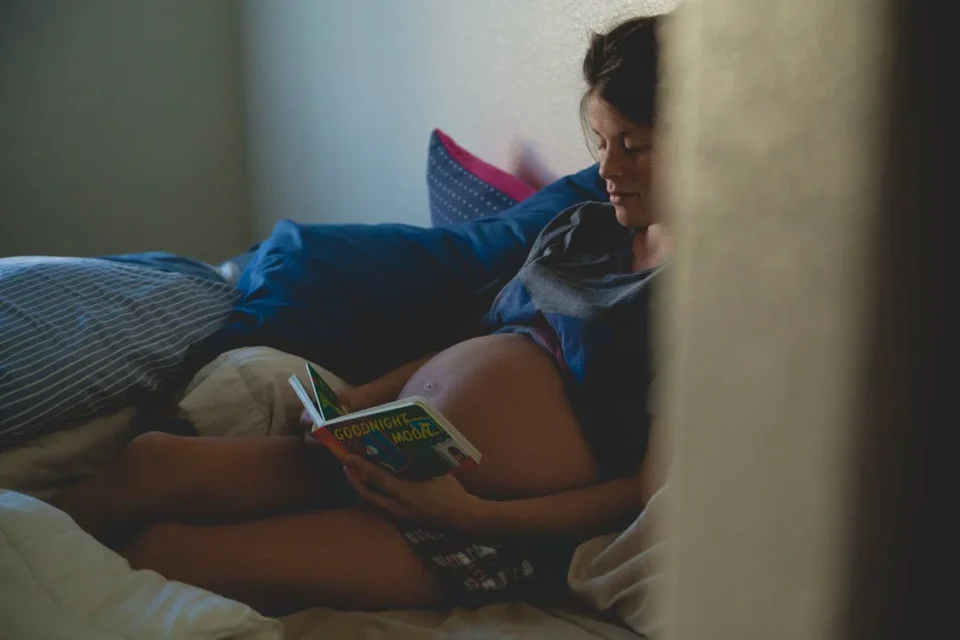There are a lot of dos and don’ts during pregnancy. But while this list may often feel endless, there are some things that are really potentially harmful and others that aren’t actually that troublesome. But as with everything in life, especially when we discuss health, there are things you can control and others that you can’t. The good news is that the position that you sleep in is something you have full control over.
However, as sleep becomes a top-of-mind priority, it’s, unfortunately, harder than ever to get. Finding the right sleep position can be challenging with your growing bump, and not everything that worked a few months back may not work today.
Why is sleep important during pregnancy?

It’s clear that pregnancy requires your body to reset and repair itself. But for many women, sleep can be ambiguous during pregnancy. Shifting hormones, physical discomfort, anxiety and excitement about being a new mother can lead to a series of sleep problems. Even the latest facts hint that 50% of soon-to-be mothers suffer from insomnia.
Sleep should be a top-of-mind priority, one that’s so important for prenatal care. It helps your body reset and repair itself, it helps your brain accommodate your baby’s brain, and your blood vessels restore, especially when they’re under increased pressure from the extra blood flow necessary to support your baby.
A number of factors lead to sleep deficiencies during pregnancy. Right from the first trimester, changing hormones causes generalized hormones and other problems that can make it impossible to fall asleep or stay asleep. Such as:
- Elevated heart rate
- Nausea & vomiting
- Breast tenderness
- Shortness of breath
- Increased body temperature
- Leg cramps
- Frequent nighttime urination
Recommended sleeping positions in pregnancy
There are a number of ways to reduce sleep problems during pregnancy, with adjustments in sleep hygiene and sleep position at the forefront. In conjunction with proper sleep hygiene, improving your sleep positions is key to getting sleep while pregnant.
-
Sleeping on your stomach

While many would argue that sleeping on your stomach should not even be discussed, there is no evidence to support that doing so during the early stages of pregnancy causes harm. Both the amniotic fluid cushion and uterine walls are there to protect the fetus.
Obviously, as the abdomen grows, altering the torso and the spine’s natural curvature, sleeping in the stomach is no longer a safe option. This may cause neck and shoulder problems such as soreness, stiffness, and pain.
-
Sleeping on your right/left side

Medical experts recommend sleeping on your right side during pregnancy, especially as time goes on. The reason? Since both your liver and vena cava are positioned on the right side, sleeping in this position will keep you comfortable and your fetus from compressing that organ.
While most doctors would recommend sleeping on the left side, many soon-to-be-mothers still shift from side to side throughout the sleep cycle.
If sleeping on your side feels complicated, using a pillow between your legs can prevent back pain caused by the pressure placed on your back during sleep. At this point, any pillow will do, there are even special cushions made for side-sleeping, but if you’re out there looking for an easy to bring on a plane pillow, we suggest you PineTales’ buckwheat hulls filled travel pillow. They may come in different forms and sizes but make sure you choose one that works for you, even if that’s a simple travel pillow.
-
Sleeping on your back

Research has it that sleeping on the back during the late stages may increase the risks of stillbirth in a small number of women. The reason? Well, the mass of the uterus could compress the aorta and the ICV. Compressing the aorta could reduce the blood flow needed from the left side of the heart to other parts of the body, reducing the blood flow to the fetus.
However, you should not worry if you wake up on your back in the third trimester of your pregnancy, but you should roll onto your side to go back to sleep.
More Tips for Sleeping During Pregnancy

Because there’s no one size fits all when it comes to sleeping solutions and sleeping pills may not be recommended during pregnancy, here are some tips for better sleep:
- Create a relaxing bedtime routine. Throw in some lavender oil, play some light music, and wait for them to lull you into a slumber.
- Avoid late night scroll and any type of electronic device for at least an hour before bedtime. The blue light on your phone will do nothing but keep your brain awake.
- Make sure your room’s temperature is comfortable for sleeping and the light is off during sleeping hours.
- Avoid watching the clock if you wake up in the middle of the night. Place it as far from you as possible if that helps.
- Sugar and caffeine are the last things you would want to consume before bedtime.
- Consider a podcast or an app for sleep. There’s myriad of them, each offering unique meditation sessions and ambient sounds.
- If you wake up, don’t stress about it. Worrying about not being able to sleep will only keep you up and ready for some more stress.
- Can’t fall asleep yet? Get out of bed and do something relaxing ( read, listen to a playlist, meditate) rather than lying awake.

Sleep problems during pregnancy are no news. You may have trouble sleeping because you’re anxious about giving birth, physical discomfort during the night, childcare, or work. You may have always had problems falling asleep.
However, it’s important to let the fact that you’re not resting enough make you more anxious. Accepting situations can sometimes be more relaxing. Sleeplessness will not hurt you or your baby and it’s important to remember that you’re not alone. So if you ever plan on taking natural sleep aids, don’t take any unless advised by your doctor.



